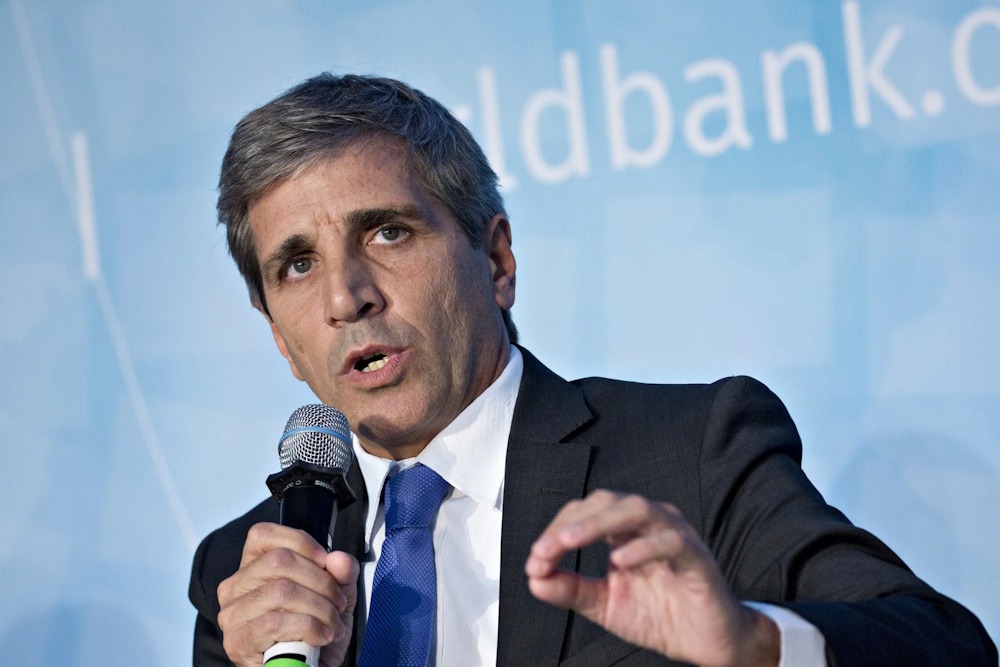Economy Minister Luis Caputo stated that dollarization in Argentina is “off the table” after the announcement that the United States would provide the country with a currency swap line and directly intervene in the local forex market by purchasing pesos. “Dollarization could be an alternative, but for now it is off the table,” Caputo stated during an interview, following his week-long visit to Washington. “At this moment, we lack sufficient dollars to ensure a successful dollarization.” The economy minister stated that Bessent’s office “is willing to keep buying pesos, financial dollars, future dollars, and bonds” in the Argentine forex market. “All instruments are on the table.”
Caputo noted that the existing swap agreement with China remains intact, notwithstanding the ongoing tensions between Washington and Beijing. In a recent interview, Bessent stated that President Javier Milei is “committed to getting China out of Argentina.” China has remarked that certain U.S. officials exhibit a “Cold War mentality” and have raised concerns regarding their “interventionist” agenda. In late September, Bessent indicated that the U.S. was “ready” to purchase Argentine bonds, “prepared to deliver significant stand-by credit” through the Exchange Stabilization Fund, and was negotiating a US$20 billion swap line. The action was broadly perceived as a form of financial rescue. Last week, the U.S. initiated purchases of pesos in the Argentine market as part of the ongoing negotiations. The government has been exhausting its limited international reserves in recent weeks as markets have expressed concerns regarding the viability of its economic strategy. Caputo asserts that the exchange rate policy “will remain exactly the same,” regardless of the outcomes of the national legislative elections on October 26.
“The band scheme will persist, and the exchange rate will fluctuate within that range,” he stated. “The International Monetary Fund is not compelling us to undertake any actions.” We determine the exchange rate policy. In April, following the establishment of a new agreement with the International Monetary Fund, Argentina implemented a currency band scheme permitting the U.S. dollar to fluctuate within a range, initially set between AR$1,000 and AR$1,400. The Central Bank engages in the buying or selling of dollars to regulate the exchange rate when it approaches these thresholds. Caputo also dismissed the prospect of a devaluation following the elections, along with any convertibility plan. The name refers to an economic strategy implemented in Argentina from 1991 to 2002, which established a one-to-one peg of the Argentine peso to the U.S. dollar.
The minister characterized Bessent’s announcements as “the most important economic news” he can recall, asserting that the United States is not seeking any concessions in exchange. Rather, he stated, the Trump administration opted to proceed in this direction due to the “political and economic alignment” between the US and Argentina. In the coming hours, Caputo is set to return to Washington alongside President Milei for a meeting with President Donald Trump at the White House on Tuesday, aimed at ratifying their alliance and economic agreements. An economic announcement is anticipated following the bilateral meeting.

